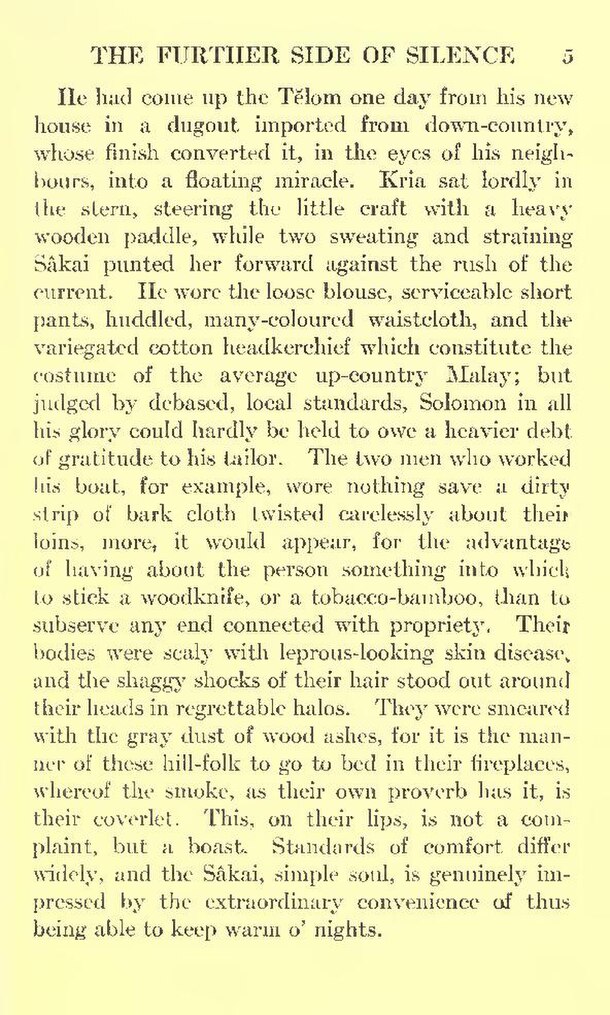He had come up the Tělom one day from his new house in a dugout imported from down-country, whose finish converted it, in the eyes of his neighbours, into a floating miracle. Kria sat lordly in the stern, steering the little craft with a heavy wooden paddle, while two sweating and straining Sâkai punted her forward against the rush of the current. He wore the loose blouse, serviceable short pants, huddled, many-coloured waistcloth, and the variegated cotton headkerchief which constitute the costume of the average up-country Malay; but judged by debased, local standards, Solomon in all his glory could hardly be held to owe a heavier debt of gratitude to his tailor. The two men who worked his boat, for example, wore nothing save a dirty strip of bark cloth twisted carelessly about their loins, more, it would appear, for the advantage of having about the person something into which to stick a woodknife, or a tobacco-bamboo, than to subserve any end connected with propriety. Their bodies were scaly with leprous-looking skin disease, and the shaggy shocks of their hair stood out around their heads in regrettable halos. They were smeared with the gray dust of wood ashes, for it is the manner of these hill-folk to go to bed in their fireplaces, whereof the smoke, as their own proverb has it, is their coverlet. This, on their lips, is not a complaint, but a boast. Standards of comfort differ widely, and the Sakai, simple soul, is genuinely impressed by the extraordinary convenience of thus being able to keep warm o' nights.
Page:The further side of silence (IA furthersideofsil00clifiala).pdf/27
